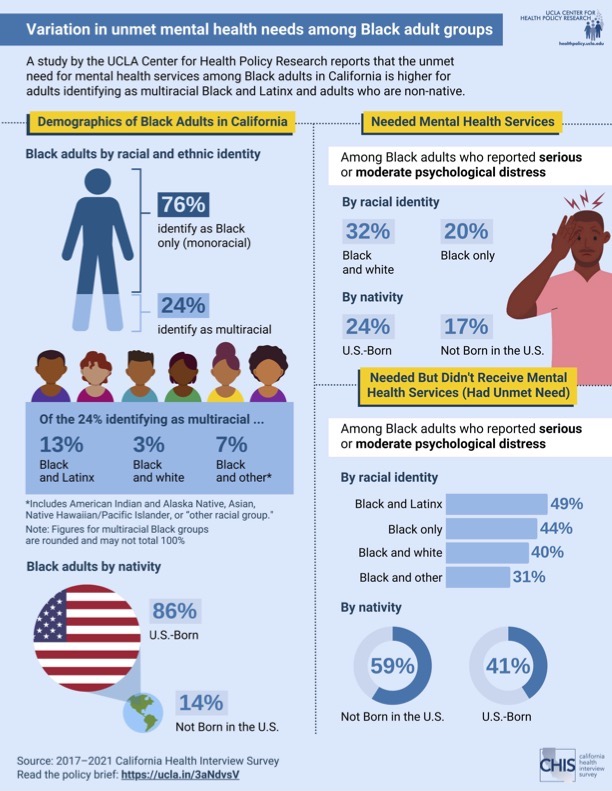
In five years of surveys, approximately 18 to 21 percent of multiracial Black adults reported having experienced serious psychological distress over the previous 12 months — nearly double the 11 rate for monoracial Black adults, researchers found. The study also found that among all California Black adults — both multiracial and monoracial — those who were born in the United States were twice as likely to have experienced serious psychological distress (14 percent) as those born elsewhere (7 percent).
Among the other findings:
- Among all Black adults with serious or moderate psychological distress, 43 percent had unmet needs.
- Among adults with serious or moderate psychological distress, the percentage who had unmet mental health needs ranged from a low of nearly 31 percent for those identifying as Black and another race to a high of 49 percent for those identifying as both Black and Latino.
- 41 percent of U.S.-born Black adults had unmet mental health needs, compared with 59 percent of those who were not born in the U.S.
“Analyzing the Black adult population as a single group simply does not reflect the nuances of different structural or social determinants that may lead to poor mental health or create barriers in accessing timely and appropriate care,” said the study’s lead author, Imelda Padilla-Frausto, a research scientist at the center. “Disaggregating the data makes it possible to see differences in the needs or unmet needs for mental health services among different groups, and this information, in turn, can be used to help inform tailored programs and services for prevention and intervention.”
The full study, “Variation in Mental Health Care Needs and in Unmet Need for Care Among Groups of Black Adults in California,” can be accessed here.


